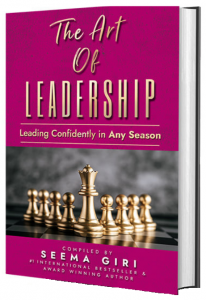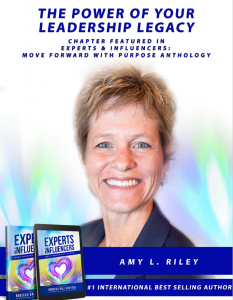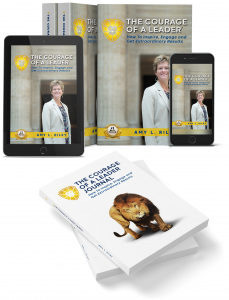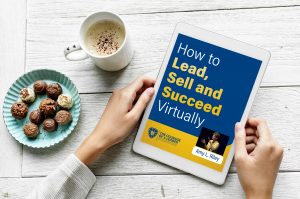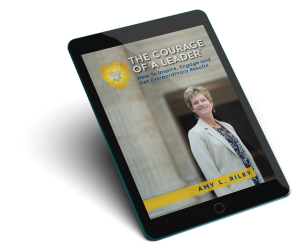If you want practical guidance to retain talent, you’ve come to the right place! My guest today is Mary Lynn Fayoumi, CEO of HR Source. Mary Lynn shares talent retention strategies that you can immediately employ regardless of your team’s or your company’s size and makeup. Glad you’re here. You’ll enjoy listening to: Easy and Accessible Ways to Retain Top Talent!
About the Guest:
Mary Lynn Fayoumi, CAE, SPHR, SHRM-SCP is the President and CEO of HR Source, a Chicago-based employers’ association with over 1200 member organizations. She is a highly respected speaker, prolific writer, facilitator, advisor and an accepted authority on organizational issues including workplace culture, employment trends, people management and leadership. Countless organizations and their teams have benefited from her expertise during her twenty-nine years at the Association.
Mary Lynn is a summa cum laude graduate of the University of Iowa with a Bachelor’s of Business Administration in Industrial Relations/Human Resources. She holds an MBA with Honors from the Thunderbird School of Global Management. In addition to serving HR Source’s 1200 member organizations, she volunteers on several business association and charitable boards and advisory councils.
Although the line between Mary Lynn’s personal and professional life is almost non-existent, she manages to find time to be a mother, a sister, a friend, a mentor, a Hawkeye, a yogi, a world traveler, a researcher and a pop-culture fan.
https://www.hrsource.org/maimis/
About the Host:
Amy L. Riley is an internationally renowned speaker, author and consultant. She has over 2 decades of experience developing leaders at all levels. Her clients include Cisco Systems, Deloitte and Barclays.
As a trusted leadership coach and consultant, Amy has worked with hundreds of leaders one-on-one, and thousands more as part of a group, to fully step into their leadership, create amazing teams and achieve extraordinary results.
Amy’s most popular keynote speeches are:
The Courage of a Leader: The Power of a Leadership Legacy
The Courage of a Leader: Create a Competitive Advantage with Sustainable, Results-Producing Cross-System Collaboration
The Courage of a Leader: Accelerate Trust with Your Team, Customers and Community
The Courage of a Leader: How to Build a Happy and Successful Hybrid Team
Her new book is a #1 international best-seller and is entitled, The Courage of a Leader: How to Inspire, Engage and Get Extraordinary Results.
https://www.linkedin.com/in/amyshoopriley/
Links mentioned in the episode
The Changing Definition of the Workplace, the workplace is no longer about the place:
https://www.dailyherald.com/business/20220309/the-changing-definition-of-the-workplace
Thanks for listening!
Thanks so much for listening to The Courage of a Leader podcast! If you got inspired and/or got valuable leadership techniques you can use from this episode and think that others could benefit from listening, please share using the social media buttons on this page.
Do you have questions or feedback about this episode? Leave a comment in the section below!
Subscribe to the podcast
If you would like to get automatic updates of new The Courage of a Leader podcast episodes, you can subscribe to the podcast on Apple Podcasts. You can also subscribe in your favorite podcast app.
Leave us an Apple Podcasts review
Ratings and reviews from our listeners are extremely valuable to us and greatly appreciated. They help our podcast rank higher on Apple Podcasts, which helps us ignite The Courage of a Leader in more leaders! Please take a minute and leave an honest review on Apple Podcasts.
Teaser for next episode
Tune in next for “Double Your Impact in One Year or Less” with Sarah Victory, author of numerous best-selling books and audio programs including Double Your Business in One Year or Less!, Do Something Brave Every Day, and How To Be Powerful.
Transcript
Mary Lynn Fayoumi is the president and CEO of HR source. She an HR source help their member organizations with a variety of workplace topics. In this episode, we talk about talent retention, and Mary Lynn gives us some excellent food for thought as team leaders, or as organizational leaders to retain top talent.
Amy Riley:Welcome to the Courage of a Leader podcast. This is where you hear real life stories of top leaders achieving extraordinary results. And you get practical advice and techniques, you can immediately apply for your own success. This is where you will get inspired. And take bold, courageous action. I am so glad you can join us. I'm your host, Amy Riley. Now, are you ready to step into the full power of your leadership and achieve the results you care about most? Let's ignite the courage of a leader.
Amy Riley:Mary Lynn I know that HR source is supporting its members in talent retention, our organizations doubling down putting more focus on strategies that have always worked for them for retaining their top talent, or are organizations employing new and different kinds of strategies?
Mary Lynn Fayoumi:Yes, and yes, they are doing both. They are doubling down and doing a reevaluation of what has worked in the past, but also trying to determine what wasn't working and what employees are looking for. So there's some data out there that I think is so interesting about the fact that employers spend a lot more time and energy on recruitment than retention, where, logically speaking, right, you don't have to do as much recruitment if you can get retention, right. And so we're definitely encouraging our members to spend more time and energy and funnel more resources to looking at what it takes to retain employees. So for years and years, we've had survey data that helps members benchmark their benefits, packages, you know, what are they providing, broaden that out to total rewards, right, compensation is getting so much, so much attention right now, due to inflationary pressures and the war for talent. We haven't seen wage base wage increases like we're seeing now, you know, since before the last great recession, so a long time over a decade, you know, over 4% pushing 5%. Employers are looking at, you know, more traditional base pay, but they're also looking at incentives, stay bonuses, retention, bonuses sign on bonuses, more than annual increases. So looking at base pay on a more frequent basis than just annually, sometimes to just keep pace. Other times, really to look specifically by job title or department. And this could also be industry specific, based on what the challenges you're facing, recruiting and retaining talent in any particular industry niche. More importantly, they're looking at what's lacking or missing. Right. This great work from home experience that we've had, has, you know, given employers and employees a lot of data about performance, productivity, morale, what has been the impact on their workforce as well as their employment potential as well as their business results? And kind of looking at the intersection of those elements to determine what the right formula, there's no one size fits, all right. There's a unique formula for each individual as well as each manager, each department, each organization. So there are many rewards, benefits, attributes, characteristics, all sorts of elements that can help an organization improve their ability to retain As employees that might not be in your employee handbook, right there, the nuances of the day to day interactions of leadership management, human interactions, collaboration, that happening could either make people feel connected to the organizations they work for, and the leaders they follow and the managers they report to, or disconnected and unmotivated and disengaged and looking out into the marketplace to say, what else is out there, this is not the right place for me anymore. I want to see what my options are.
Amy Riley:You have already said so many great things, Mary Lynn. And the thing that kept spinning through my head was information we need some data are not only internally, I are find out from your leaders, find out from your team members, are people feeling connected, you know, what does the data the performance and the results data tell you are people engaged? Right engagement leads to performance leads to results, but also the data benchmarking externally. Right, well, how does your total rewards package compare? All right, and making sure you've got that strategy that's focused on retention, not the strategy that's focused on recruiting
Mary Lynn Fayoumi:bright because a lot of internal candidates and star performers, people who are happy, you know, incumbents in their current positions, are looking at all of these wonderful, cool, generous things that their employers are doing, for people who've not even worked a day at the organization. And they're saying, What the heck, what about me, I've been toiling away, heads down, getting my work done helping your organization, this organization, my organization be successful. And yet, you're giving sign on bonuses, and, you know, higher, you know, opening salaries to those who have not even proven themselves. You know, think about me a little bit. That's why we've been recommending, you know, stay interviews, which are not any different than one on one, open discussions, you know, between managers and employees, sometimes HR gets involved, but certainly doesn't have to, except for if they need to help facilitate, perhaps the appropriate questions to ask or how the data is going to be used on the back end. But back to the point you made Amy, about data and information. It's coming from all different sources inside and outside of our organization. But it's imperative that we determine how best to use it, how it applies to our organization, what information we can and should act on and what we might need to leave for a later date, or isn't them pressing for our own organization? And that's a unique back to the there's no one size fits all? That's a, you know, unique question and answer for each and every organization, and perhaps even down to the department level, or the individual relationship between any given manager or supervisor and their employees. Right. There's a lot of customization there that can have incredible impact, as well as results for the organization. If done, right.
Amy Riley:Yes. Because what works for one team, one function in the organization, one role in the organization, one individual in that role in the organization might not be what works in in other areas. Yeah, and can Yeah, and how do we, yeah, overall, create what works in the culture in the organization, but allowing for that flexibility, giving leaders that autonomy to be able to figure out what's going to work best for their individual team members. Right?
Mary Lynn Fayoumi:And it does take effort. It takes time. It takes compassion, empathy, openness to change. You know, it takes more energy, of course, across the board to figure out all these unique formulas for success, right? It's not one formula. But there are a set of actions behaviors that can be employed consistently. That will lead to success. Right one of them you know, we're talking a lot about today and I know You know, gets a lot of play time in your book and in your presentations and, you know, listening, right listening, learning, openness to consideration of various methods of getting things done, there's no white way, there are a lot of different ways that you can move forward. And with regard to retention, the fact that organizations are not just looking at the traditional techniques that used to retain employees, but considering the fact that employees are very different than they once were, we have all been fundamentally changed by what we've been through over the past couple of years. And we've got to add that to our conversations, and to what our re invented. Workplaces look like. I recently wrote an article about, you know, work, the workplace is no longer about the place. Yes. Right. So just even opening our imaginations to what the work life looks like for our team members, in a much more organic way than we ever would have in the past is, I think, a pandemic plus a really positive things that's happened. And I think those organizations that are taking the time, and putting the resources into being open minded, are going to reap the benefits, right there. Retention is going to come more easily to them than those who are hard wired to stick with their very traditional work models, very traditional policies, very traditional benefits, are probably going to either have some eye opening departures, that might be a wake up call, or you know, they might be limited and who they're able to attract and or retain going forward.
Amy Riley:ployers Association with over:Mary Lynn Fayoumi:It is my pleasure, Amy, I always enjoy our time together.
Amy Riley:Me too. So I'm hearing even though employers, you're feeling the pressure to do something, they'll have the knee jerk reactions, take the time, get the data externally, internally. And I'm also like, I'm saying to leaders, it's not a one and done. We're all getting used to new rhythms in our lives. And you and I were talking earlier about getting used to travel again, and what do we not enjoy as much as we used to really enjoy and maybe there's some new benefits that we didn't use to experience in the past. It feels different. Like you said, we've been fundamentally changed. So how do you keep going getting this information from your employees.
Mary Lynn Fayoumi:There are so many ways. So there used to be the well known technique, managing by walking around, right?
Amy Riley:That's a long lock these days is a long
Mary Lynn Fayoumi:walk, you're gonna burn a lot of calories if you're on that walk. But how do you move that into the virtual world? Like what we're doing today potentially, you know, phone calls, Zoom calls, FaceTime, coffee chats, meetups. Also, you can do spot surveys throughout the pandemic, I've been doing, you know, short surveys, sometimes very focused on comfort with coming back to the office, or comfort with going out to visit our member organizations, but also trying to find out what employees value. Right? Do they value more time off? Do they value shorter workdays would they what kind of help or support would be most meaningful to them in today's environment. So spot surveys, the one on one conversations with your direct reports, but also your opportunities to collaborate across departments. I've heard over and over again, and I've experienced in my own organization, departments and in tech teams seem to be more highly communicative than ever, during the pandemic. But it's those cross departmental cross team that are suffering, because people are you don't run into each other at the watercooler or the coffee pot, you're not just having a casual, you know, lunch in the cafe at your organization and chatting up people that you would normally talk to, you know, normally today, if we were in the office, people would be talking about, you know, the NCAA Championship last night, instead of I've been receiving texts all morning about it from my Kansas. And it's so different people you would normally talk to about, you know, exciting things happening with their family, you know, upcoming graduations or weddings or college search that organically happened in the workplace, and then perhaps morph into discussions about projects coming up new initiatives, strategies you're employing. So how do you take those conversations and not only ensure that they happen, but make sure that they're valuable? That has been a little bit more challenging for organizations, and they've had to find ways to be more intentional about it. And people, there's so many strategies, as you know, and tactics to work towards that. But as managers and leaders, the willingness to have conversations, and be open to what you're hearing, so truly listening, and giving people the time to hear them out, is very critical. And then there's also of course, more formal, right focus groups, engagement surveys. So we've been doing a lot of employee engagement surveys, the the beginning of the pandemic had kind of a chilling impact, or chilling effect on employee engagement surveys, I think employers were like, Oh, my gosh, we don't even know what to do ourselves, the last thing we want to do is gather employee input, because we're not going to be able to act on any of it. But it's that's thought off, you know, throughout 21, we saw our demand increase again, for engagement surveys, focus groups, all sorts of organization development activities, both in person and virtual, where people were gathering their teams together. And, you know, doing strategy work, working on team building, improving communications. So there's so many, both formal and informal methods to be
Mary Lynn Fayoumi:that was, you know, summer of:Amy Riley:Yeah, oh, I realistic. I'm loving this, Mary Lynn want to underscore that, like, sure. Look online, listen to this podcast, hear all the different ideas and strategies approaches that you can take, but really stop and reflect what's going to work for you. Right? If you're a senior leader in an organization, or you're a leader of a team, right, what is going to work for your leadership, the individuals that you work with, and the kind of work yet that you all do. I was also thinking, if we don't implement 27 things at once, Mary Lynn, then maybe we'll actually see which levers are having the most impact.
Mary Lynn Fayoumi:Yeah, so we recently took a big experiment, and totally switched up one of our big events, okay. And what we learned from it was we to your point of levers, we switch so many levers at one time, which was a calculated risk, but it's made it difficult to measure which of those lever switches impacted our results. Right, where we, if we had perhaps only moved a few of the levers at one time, you know, sometimes you have to blow the whole thing up and start from scratch, but we had a very successful formula. But given the times and the need to, you know, risk be, you know, take some risks, mix it up, we decided to make a whole bunch of changes all at once, which has made it challenging to measure the impact of those changes. So to your point, Amy, try things. Realize what changes you're making or what levers you're pulling, and then evaluate and call it either a success, make further revisions, or learn from your mistakes or failures, right?
Amy Riley:Yeah, and maybe it's time for a spot survey. I love that name. i When you said that I was like, yes. Because to the point that rhythms are changing in our lives, and what works for an individual employee today might not be what works for them even a month from now. Right? So the spot surveys, and then we don't get over surveyed as well, because you've got the 170 questions survey, that totally comprehensive one that's coming out now, you know, we're doing what's right for our organization. So maybe there is like, a big data dump that you want, and you're ready for it. Right, you're open to pulling a few levers that wants, but also not over serving, right?
Mary Lynn Fayoumi:Because there's definitely survey fatigue, right. And there's all a detrimental effect of surveying gathering data, and not acting on it. So a really important step is if you have data that you are, have read, have have analyzed have synthesised, but you are choosing for business reasons, financial reasons. So whatever your reasons are, it's important to then follow up with your employees to let them know, thank you for sharing your information, thank you for providing input. These are the reasons that we are not currently able to act upon this valuable information that you are willing to share with us. Nice. So don't forget that that step because the act of surveying in and of itself. Like I jokingly say like if inviting people, even if they can't come to something you do get some, you know, brownie points for the invite same thing is true of surveys, you know, asking and inviting people to contribute. But then where the analogy doesn't work anymore is, you know, in an invite someone RSVP is no, it's on them. With the survey, they've given you something right, they've sent you the gift, then it's imperative on you to send a thank you note, and to act upon that gratitude. Bye, bye by letting them know, this was very helpful input. But due to fill in the blank circumstances, we currently are unable or the timing isn't right, we may be able to consider this in the future. But currently, we chose these three initiatives, these three benefits. These are the things we're going to be using in the short run. But again, thank you, thank you.
Amy Riley:Send your thank you notes. I love it, Maryland. Yeah. And a number of the clients that I'm working with as they're choosing hybrid approaches, how many days to be in the office, which teams need to do what after being open and listening to data. Also talking about how this is a trial period, we're going to try this. And the acknowledgement that again, we might not even know what we want, a few months from now. So let's try let's get some more data. Let's see how we all feel about this. And we're gonna continue to make adjustments. So not exactly, you know, you you, you get your strategy, you check it off, you've got your data, and it's set in stone.
Mary Lynn Fayoumi:Right. It's a work in progress, and it will continue to be a work in progress. Right? The only constant is change. And what another little pandemic plus, I think, is that leaders, if they are being authentic, are admitting that they, their crystal ball doesn't work very well either. And so they're being much more transparent and humble about the fact that we don't know either, right? We don't know what the next surge is going to bring. We don't know if bringing people back to the office is going to boost morale and productivity. We're going to keep experimenting, and we're going to stay open to additional changes. Hang with us, work with us. You know, keep us informed. Give us a chance realize we I'm speaking as leaders make mistakes too. We're all fumbling through this together. And, you know, that will make us more successful sticking together instead of working against the each other, we're all trying to learn and figure out how to be the most successful, given today's circumstances, which are today's circumstances, right? Not next weeks or next months, we simply don't know.
Amy Riley:Yes, yes. What's popping into my mind? As you're talking? Fairyland, is it's it's a process. It's not a project. This isn't a project of figuring out how we're going to retain talent. And then we've, we've got our things, and we and we check them off and follow them forever. It's a process. Right? And
Mary Lynn Fayoumi:I'm guessing, I don't know for sure, we could probably do a little research on it. But that whole work in process, I'm guessing is a manufacturing term taken from right, post world war two days or World War Two. And that is, you know, so ever relevant, right? Process journey. You know, sometimes people complain about these words being overused, but it is an evolution, and right, the willingness, desire, energy and enthusiasm to continue these processes, and to not rely upon just what we think we know. But back to one of our earlier points, to continue to scan the environment, gather data, confirm with our stakeholders, all of those things are so critical, probably more critical than they ever have been. And my hope is that we don't get so comfortable again and complacent in whatever stage we end up in next, that we're not continuing to incorporate some of these really important activities, the listening, the reinventing the pulling of the Levers, the remeasuring. We don't, you know, forget about all of those techniques that will serve and have served us well, will that will continue to serve us well, that we don't start resting on our laurels and go into autopilot again. And stop reflecting on the fact that this is a process and will continue to be a process.
Amy Riley:Mm hmm. Yeah. So you've said a number of times a number of ways that all leaders listening out there I be open truly, right. This is a time to check our assumptions. Really listen. Anything else, Marilyn, that you would offer? You know, a team leader out there who's listening has five to nine direct reports. really wants to retain their top talent? Beyond be open? Listen, stay tuned in. Keep scanning.
Mary Lynn Fayoumi:Yeah. So one of the most important things that I don't think I've spent enough time on today. So your question just triggered it is recognize their performance? Give them regular feedback? Yes, right. One of the best ways the most important ways you can show people that you value them is to give them attention, right? Don't let your superstars or even your B players be left to their own devices and not pay attention to them. Don't think they're plugging along. They're doing fine. They know I love them. And I think they're awesome. Tell them show them regularly. Right. Give them opportunities for growth and development. So it's not just about asking them how they are. Tell them how you think they are. Right? Yeah, share, share your appreciation, give them specific feedback. I was at a recent event, and I ran into someone who gave me a compliment about one of my team members in terms of a search that we had recently worked on and right away when I got back, I emailed her I emailed her boss, and I told them both, right thank you for representing HR source. So well look at the difference you're making. You're, you know, improving our reputation, you're leading the future referrals. mean those make that a regular part of your practice when someone steps up, and don't just give at a girl's attaboys give them specific feedback. Thank you for doing blank. You write your performance? Yeah, yes.
Amy Riley:I love it.
Mary Lynn Fayoumi:Most important gut. I mean, that's always been critical, but with a lot of people who are leaving saying, you know, I didn't really feel like my boss. My organization knew how hard I work. They didn't care that much about me personally, you know, I needed to hear more I want to be appreciated, I wanted to be shown and have some sort of recognition for the hard work I'm doing. So back to the don't assume that people know how you feel. Now again, tell them how you feel, show them how you feel. And that will make a difference.
Amy Riley:I love it. I love it. And so many leaders and organizations are focused right now. And how does our culture feel as the workplace is not the workplace anymore, it's a different kind of work environment. If you catch an employee doing something that positively impacts the culture, right? Really be on the lookout for that and reward those individuals. And we can get everybody on the team. Everybody in the organization engaged in creating the kind of culture that they want, right and want to be included in what's going on in another area of the organization will How are you including people in your department and in your expertise?
Mary Lynn Fayoumi:Definitely. So critical and not that time consuming are hard to do. But people get really wrapped up in their own to do list and their own agenda. And sometimes they don't need to overload. Right, exactly. So making that an important part of your daily to do is to reach out to someone pick up the phone. Just call someone and let them know send them a quick note. There are so many ways to let your team members know that you appreciate them that you've noticed their hard work that their contributions matter.
Amy Riley:Love it. Marilyn, you've given us so much great information today. Be open listening spot surveys. I love that recognized performance. Send your thank you notes after you do a survey. Let let folks know what are you what are you not able to follow up on and why? And choose what works for your team for your organization. You can get a lot of great advice out there. And it's got to be the advice that fits for you. Definitely say thank you for your time today. Mary Lynn not always appreciate being able to spend time with you.
Mary Lynn Fayoumi:Agreed Amy, interesting conversation on a topic that's so near and dear to both of our hearts. It's been a pleasure.
Amy Riley:Thank you.


 A Summary of The Courage of a Leader® 4 Pillars
A Summary of The Courage of a Leader® 4 Pillars